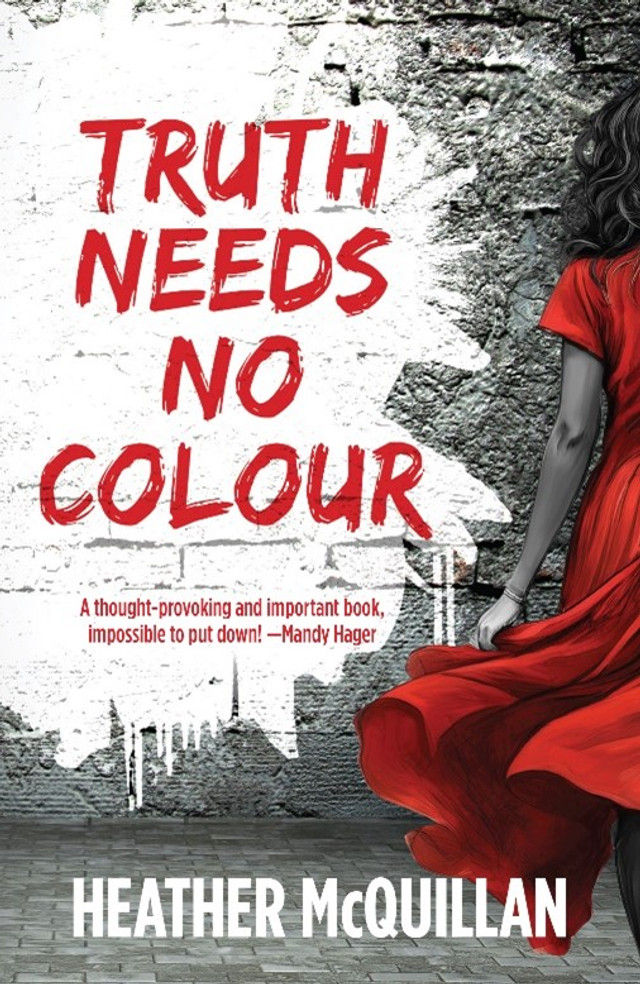Truth Needs No Colour by Heather McQuillan
- NZ Booklovers

- Sep 16, 2025
- 2 min read

Heather McQuillan’s Truth Needs No Colour is a searing addition to the landscape of New Zealand young adult fiction. Set in a dystopian near-future, it imagines an Aotearoa dominated by Carapace, a shadowy corporate giant whose reach extends into politics, schools, food supplies and every aspect of daily life. Against this backdrop of manipulation and control stands Mariana, a fifteen-year-old girl who has already endured profound personal loss. With her mother dead, her father missing, and her life uprooted to a cyclone-stricken South Island, Mariana faces both the weight of grief and the suffocating rules of an authoritarian society.
The story begins with an apparently small act of rebellion: Mariana wears a red dress to her new school. What seems innocuous to her becomes a transgression with serious consequences, pulling her and her family into dangerous scrutiny. The red dress becomes more than clothing; it is a symbol of defiance, individuality, and the risks inherent in making oneself visible under an oppressive regime. This moment propels Mariana into a series of choices where silence offers safety but speaking out might cost everything.
McQuillan crafts Mariana with depth and nuance. She is neither a flawless heroine nor a passive victim but a teenager navigating impossible circumstances. Her fear feels authentic, as does her longing to stand up for her friend Filiki, who is caught in Carapace’s brutal system. When Mariana does find her voice, the results are complex and costly, making the novel as much about the burden of courage as the necessity of it. Secondary characters, including Mariana’s grandparents and classmates, enrich the story by reflecting different ways people adapt to systemic injustice through complicity, survival, or quiet acts of resistance.
Thematically, Truth Needs No Colour explores authoritarianism, propaganda, and the erosion of personal freedoms. Yet at its heart, it is a novel about voice: whose voices are silenced, whose are amplified, and what it takes to speak when silence feels safer. In this, McQuillan connects Mariana’s personal struggle with wider questions about activism, justice, and moral responsibility. The narrative resonates with global concerns about climate change, inequality, and the co-option of truth in political discourse, making it both timely and unsettling.
Stylistically, McQuillan’s prose is taut and purposeful. She balances moments of despair with sparks of humour, tenderness, and even romance, ensuring the book remains accessible to young readers while challenging them to grapple with weighty ideas. The pacing is sharp, each chapter driving forward with a sense of urgency that mirrors the tightening grip of Carapace. The imagery, particularly the recurring motif of the red dress, is both vivid and symbolic, offering readers a thread of hope amidst the bleakness.
By grounding its futuristic setting in Aotearoa, it makes visible the vulnerabilities of a small nation to global corporate power and environmental upheaval. It also situates Māori and Pasifika perspectives within the fabric of its narrative, ensuring the story reflects the diverse realities of its likely readership.
Truth Needs No Colour is more than a gripping dystopian tale. It is a work of social commentary that asks young readers to think critically about the world they are inheriting. At once frightening and hopeful, it suggests that even when systems seem unassailable, one voice can ripple outward and spark change.
Reviewer: Chris Reed
Cloud Ink



